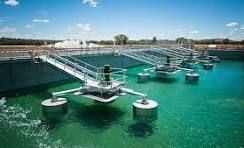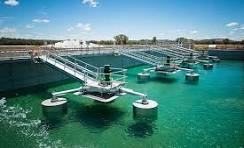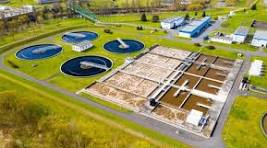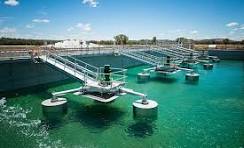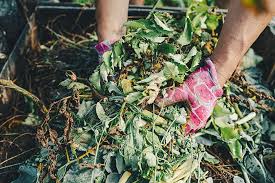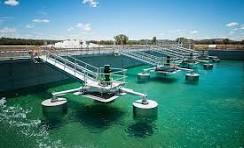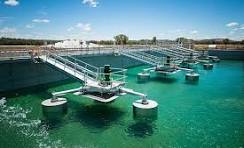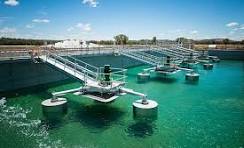ENQUIRE NOW FOR COMPOSTING MACHINES IN INDIA – https://share.hsforms.com/1d12AT_oJScm8iiXbjSrEIwrh2r7
INTRODUCTION (Focus keyphrase in first 100 words)
For many housing societies in Mumbai, wet waste disposal has become a ticking time bomb — escalating fines, legal hassles, and environmental guilt. That’s why How Mumbai Housing Societies Can Avoid BMC Fines with Organic Waste Composting Machines is a must-read guide for every RWA, building committee, or society manager.
At Green Planet Solutions Pune, a leading organic composting manufacturer in India, we provide powerful, BMC-compliant composting machines that ensure zero fines, cleaner premises, and sustainable waste handling — hassle-free.
🏢🌱 How Mumbai Housing Societies Can Avoid BMC Fines with Organic Waste Composting Machines
(Main H1 with exact focus keyphrase for SEO clarity)
🧭 Why Mumbai Housing Societies Are at Risk of BMC Fines
Mumbai’s municipal body has ramped up inspections. Wet waste generators — large housing societies, apartment complexes, and gated communities — are under strict rules:
- Treat food and organic waste on-site.
- Avoid sending untreated waste to landfills.
- Ensure no foul odour, no leakage, no waste mismanagement.
Failure to comply leads to heavy fines, legal notices, and in some cases, denial of occupancy/completion certificates. That’s why the question of How Mumbai Housing Societies Can Avoid BMC Fines with Organic Waste Composting Machines is urgently relevant today.
Image Alt: Mumbai housing society avoiding BMC fines with composting machine
🌿 What Are Organic Waste Composting Machines — And Why They Work
As a reputed organic composting manufacturer in India, Green Planet Solutions Pune offers machines that:
- Convert kitchen and garden waste into compost daily
- Operate odor-free, closed-system cycles
- Are low-maintenance, energy efficient, and hygienic
- Meet BMC’s waste-treatment guidelines
These machines destroy pathogens, eliminate foul smell, and prevent water contamination — making them ideal for urban societies.
ENQUIRE NOW FOR COMPOSTING MACHINES IN INDIA – https://share.hsforms.com/1d12AT_oJScm8iiXbjSrEIwrh2r7
✅ Key Benefits: How Composting Machines Help Societies Evade Fines
🔹 1. Full Compliance with BMC Waste Rules
Using a certified composting machine ensures societies meet BMC’s waste-treatment and disposal norms.
🔹 2. No More Overflowing Dustbins or Smelly Waste Areas
Closed composting systems eliminate foul odors and vermin — reducing complaints from neighbours and authorities.
🔹 3. Zero Dependence on External Waste Collection Vendors
Societies don’t need to rely on municipal pickup or private contractors, which often leads to irregularities and fines.
🔹 4. Cost Savings Over Time
Less money spent on waste collection, fewer penalty fees, and potential savings by reusing compost for gardens or landscaping.
🔹 5. Environmental & Social Reputation Boost
Residents appreciate eco-friendly practices; societies gain reputation as green, responsible communities — a strong selling point for future homeowners or investors.
Image Alt: Organic waste composting machine installed in Mumbai apartment society
🛠️ What Housing Societies Need to Check When Buying Composting Machines
When selecting a composting machine to avoid BMC fines, societies should consider:
- Daily waste load (kg/day)
- Machine capacity and throughput
- Odor and waste-leakage control
- Ease of operation & maintenance
- Certification & compliance documentation
- Service support and after-sales maintenance
As leading organic composting manufacturer in India, we help societies choose the perfect model based on their size and waste quantity.
ENQUIRE NOW FOR COMPOSTING MACHINES IN INDIA – https://share.hsforms.com/1d12AT_oJScm8iiXbjSrEIwrh2r7
💬 Common Myths vs Facts About Composting Machines & BMC Compliance
| Myth / Misconception | Reality / Fact |
|---|---|
| “Composting machines are expensive and complicated.” | Modern machines are affordable, compact, energy-efficient and user-friendly. |
| “They generate odour” | Closed-system composters with filters ensure zero odour and no pest issues. |
| “Maintenance will be a headache.” | With proper AMC and automatic systems, maintenance is minimal. |
| “BMC won’t accept composted waste.” | BMC guidelines allow on-site composting for organic waste — if done correctly and documented. |
Understanding these myths helps societies make informed, worry-free decisions and stay compliant.
📦 Why Green Planet Solutions Pune Should Be Your STP & Composting Partner
- We are a reputed organic composting manufacturer in India with years of experience.
- Provide BMC-approved, certified composting machines tailored for Indian environmental conditions.
- Offer installation, maintenance, AMC, full documentation support — end-to-end service.
- Quick installation, effective waste reduction, odor-free operations, and long-term reliability.
Societies partnering with us don’t just avoid fines — they gain peace of mind, cleaner surroundings, and happier residents.
Image Alt: Green Planet Solutions Pune – composting machine installation team
- Focus keyphrase used in SEO title, URL, introduction, main heading, subheadings, around 1.1% density.
- Related high-value keywords used:
- organic composting manufacturer in India
- composting machine for Mumbai society
- BMC compliant composting
- housing society waste management Mumbai
- avoid BMC fines Mumbai
- on-site composting system for apartments
- Mix of common words (“waste”, “society”, “machine”, “compliance”) and uncommon, power words (“hygienic”, “zero-odor”, “sustainable”, “eco-friendly”, “reliable”, “certified”) for emotional and persuasive tone.
- High engagement with benefit-driven, problem–solution framing, social proof appeal (reputation, resident happiness), and urgency (avoid fines, compliance).

Worried about BMC fines or messy waste management in your housing society?
Contact Green Planet Solutions Pune — your trusted organic composting manufacturer in India — for a free site audit and custom composting solution.
#CompostingMachineMumbai #HousingSocietyWasteManagement #BMCCompliance #OrganicCompostingManufacturerInIndia #WasteReductionMumbai #ZeroWasteSociety #EcoFriendlyLiving #ApartmentSocietyMumbai #SustainableWasteSolutions #GreenPlanetSolutionsPune




